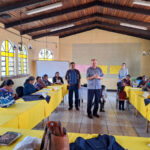By Marielos Burgos, El Salvador
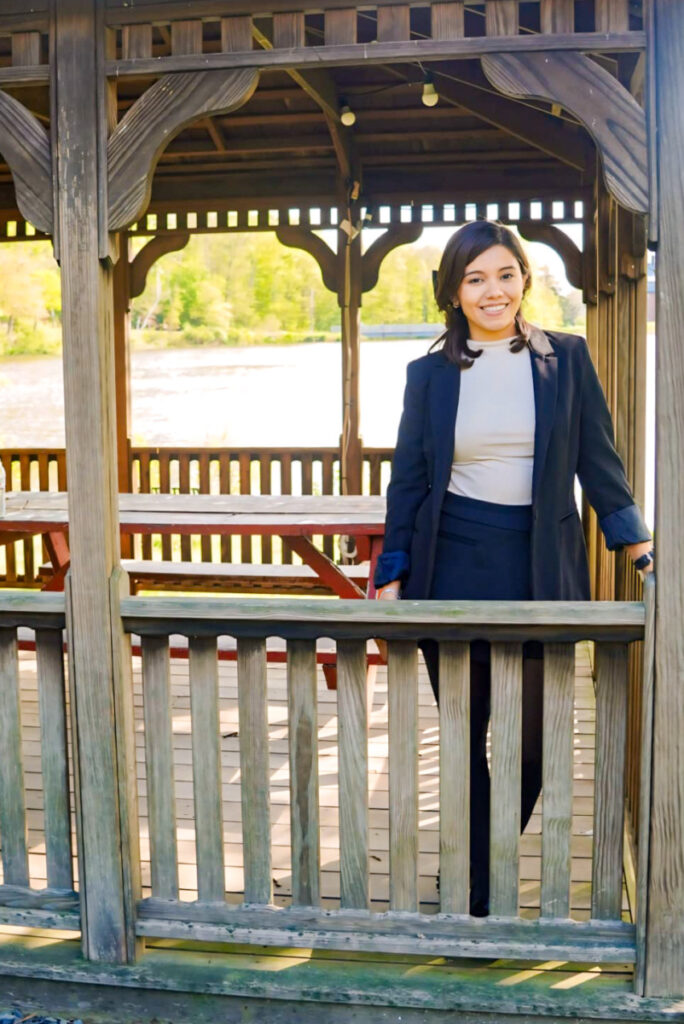
Once upon a time, there was a river that flowed through the mountains, bringing life to everything it touched. Over time, its flow weakened, and the green of its surroundings was turning into an arid desert. One day, as the river pondered its dwindling strength, the wind whispered, “Dear river, I can help you, but you must trust me.” The proud river refused, insisting it could manage alone. As the river narrowed and its surroundings dried, the wind reappeared, offering to turn the river into clouds to be reborn in the mountains. Desperate, the river agreed. Gently, the wind lifted the waters of the river, turning them into a beautiful, shimmering cloud, carrying it to the mountains where it rained, revitalizing the land. The river, now rejuvenated, began a new, stronger and more vibrant course than ever. Story as told by Annabel Beerel in the lecture “Leadership and decision-making where there are no easy answers”.
My name is Marielos Burgos and I am a 32-year-old Salvadoran psychologist specializing in fundraising and management for development projects. With over a decade of experience in the NGO sector, I excel at building partnerships and alliances, fundraising and promoting sustainability. I am passionate about transforming the lives of more than 40,000 children in vulnerable communities across El Salvador. Outside of work, I enjoy sports such as running, swimming and cycling. Like the river, this opportunity came into my life to show me new experiences, new lessons and to open my mind to new ways of facing difficulties with confidence in the future.
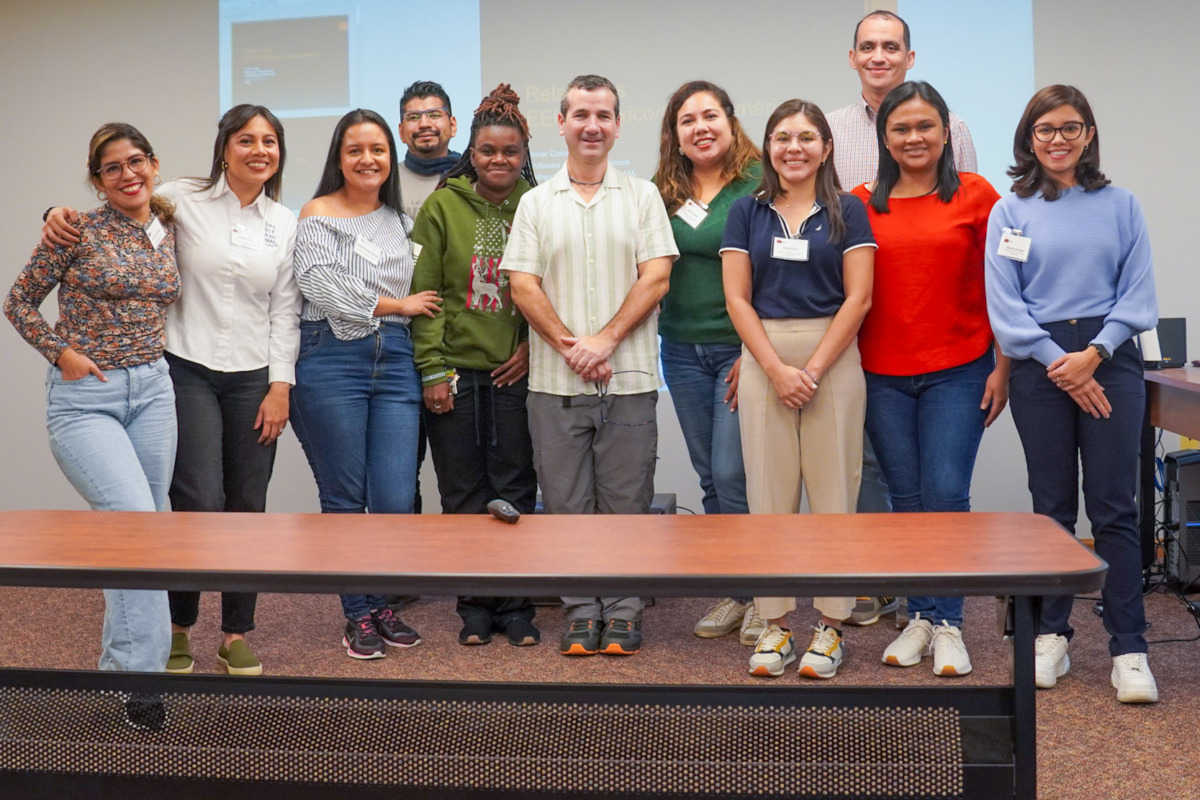

The first week of the Professional Fellow experience, together with the amazing ITD team; Stephen, Katie, Edgardo, Yanara, Mark, Rafi, Jesse, was amazing and full of learning. From arriving at Bradly International Airport to leaving for New York, it was full of new knowledge and learning. I had the opportunity to meet Javier Corrales from Amherst College who showed us about the U.S. Government’s relations with Mexico and the Northern Triangle as well as concerns about important issues such as democracy, arms and drug trafficking, among others. Then I met Professor Ken Kersch, who gave us a presentation on how the US government is organised through its different bodies such as the congress, the presidency and how the federal courts work. Undoubtedly, both presentations allowed me to learn more about the internal and external relations of the US government.
We had a personal visit to the Makerspace at Mt. Holyoke College, where we met Rick Feldman, Director of the Innovation Lab. We heard interesting stories about how entrepreneurs can make amazing prototypes using 3D printers to find out if they are active or not. On the last day we had the incredible presentation by Annabel Beerel about leadership and decision making, this presentation was key because the main message is that the leader is the person who is able to lead the organization into the future through transformation and innovation, working as a team.
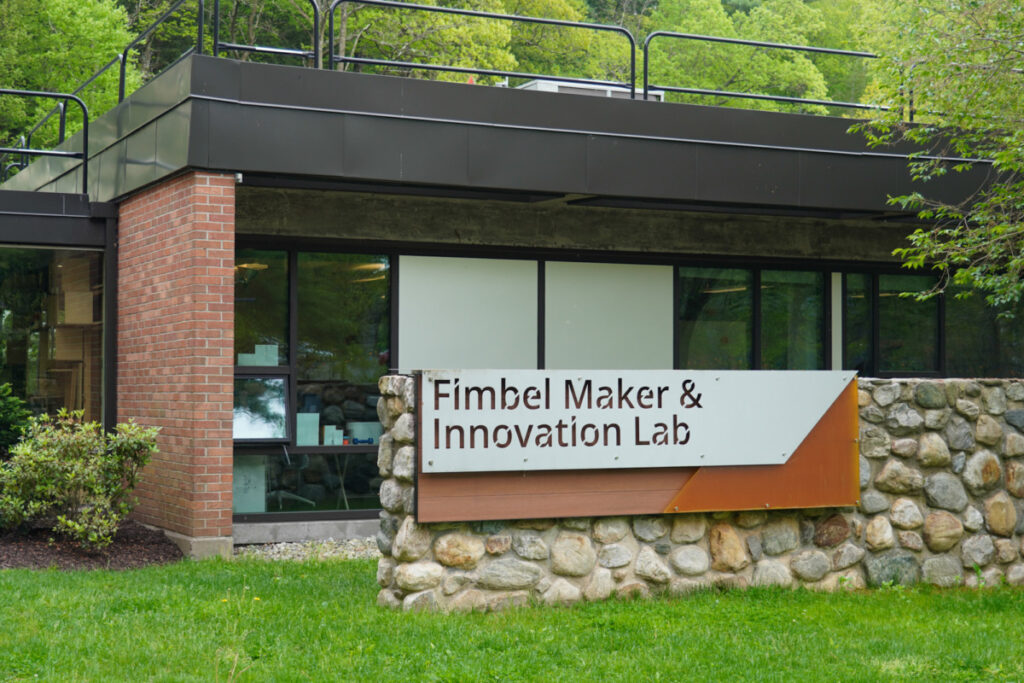
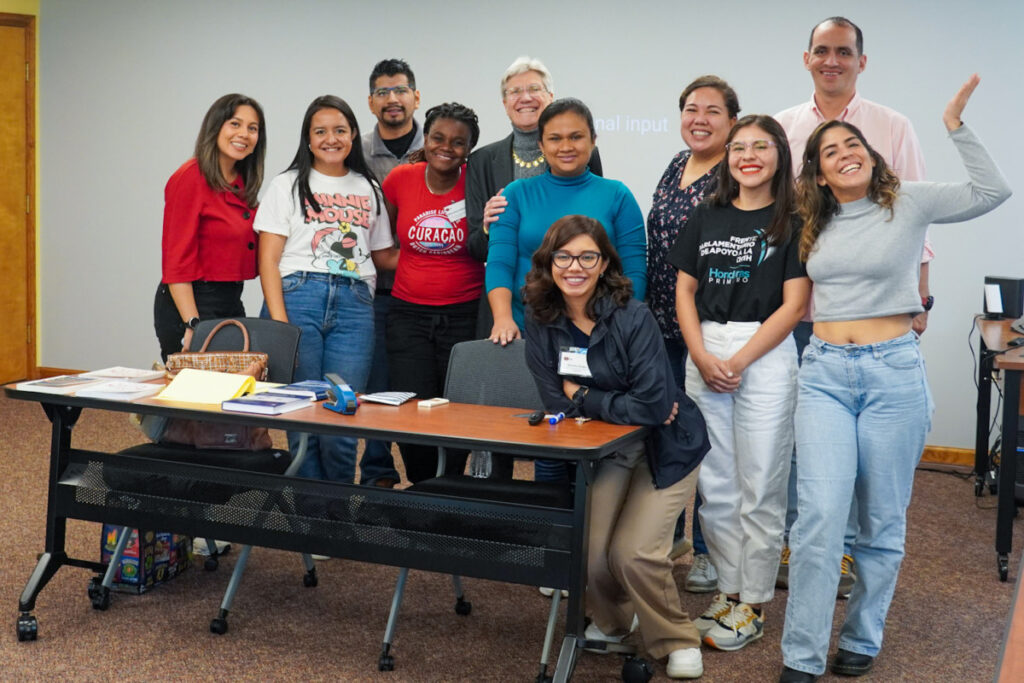
However, this has not only been an academic experience, it has also been an experience of meeting incredible women and men who seek to transform their country, Honduras and El Salvador, with their knowledge and dedication, trusting that it is possible to find a prosperous future in our countries. After a weekend of getting to know New York City and its history through the Natural History Museum, the Brooklyn Bridge, the Statue of Liberty, the Rockefeller Building, we were able to have a meeting at the Council on Foreign Relations where we had a space to talk with Will Freeman about crime and how illegal markets are affecting democracy and security in Latin American countries.
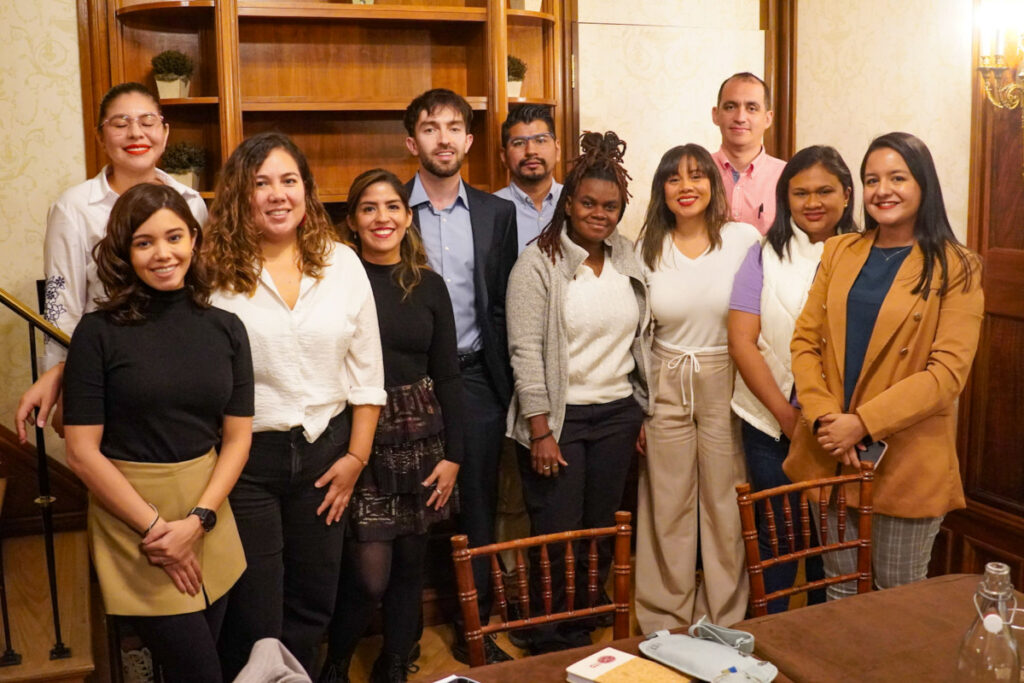
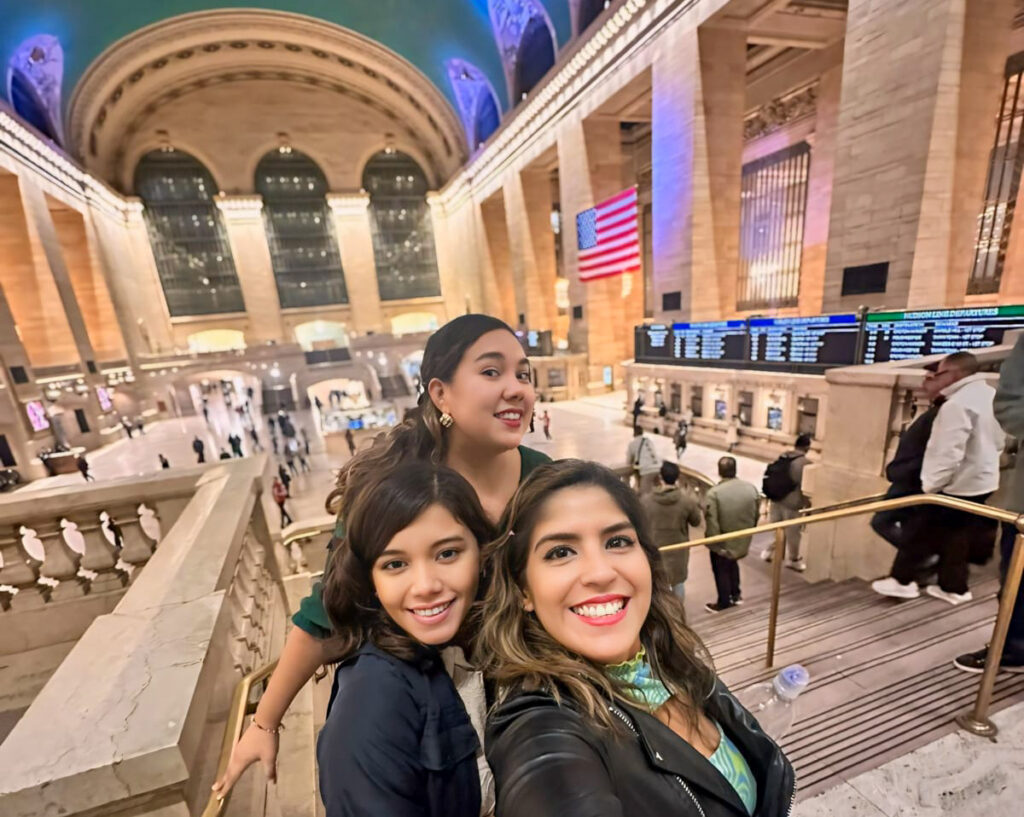
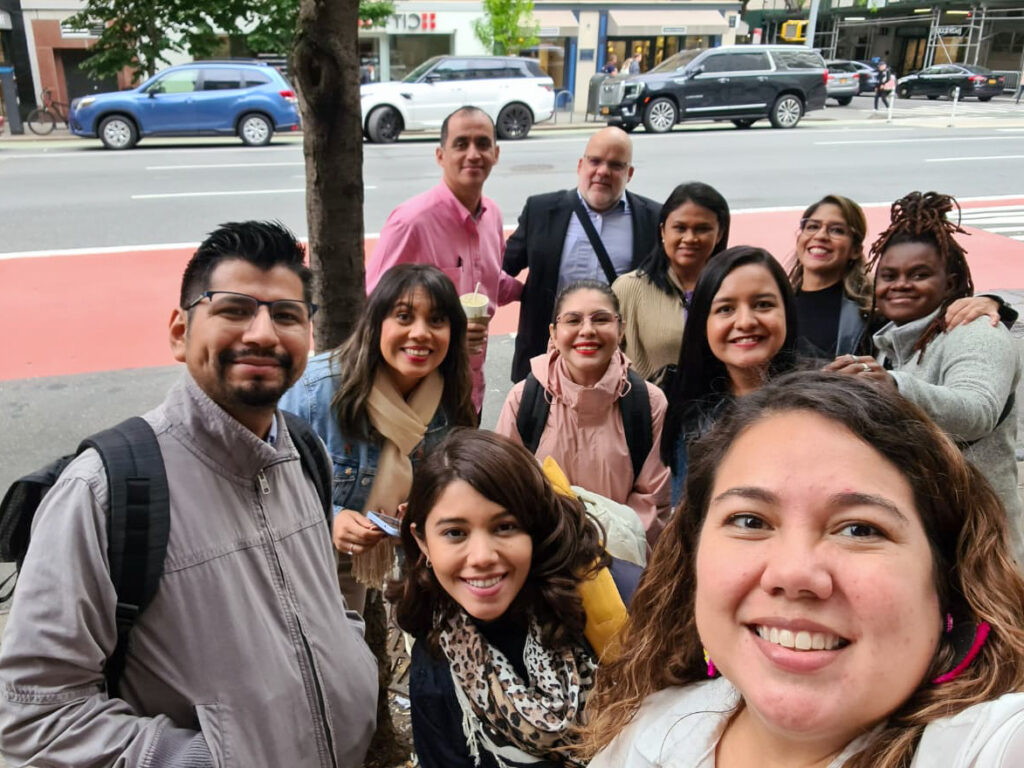
Over the past two weeks, I’ve allowed the winds to guide me, revealing new avenues, fresh perspectives and innovative approaches to my work. My goal is to return to my country ready to pour down like rain, forging a new path of empowerment for young people who want to rebuild their lives through opportunities in employment, entrepreneurship or education.
All opinions expressed by the program participants are their own and do not represent nor reflect official views from the Bureau of Educational and Cultural Affairs of the U.S. Department of State, or of the Institute for Training and Development, Inc.

